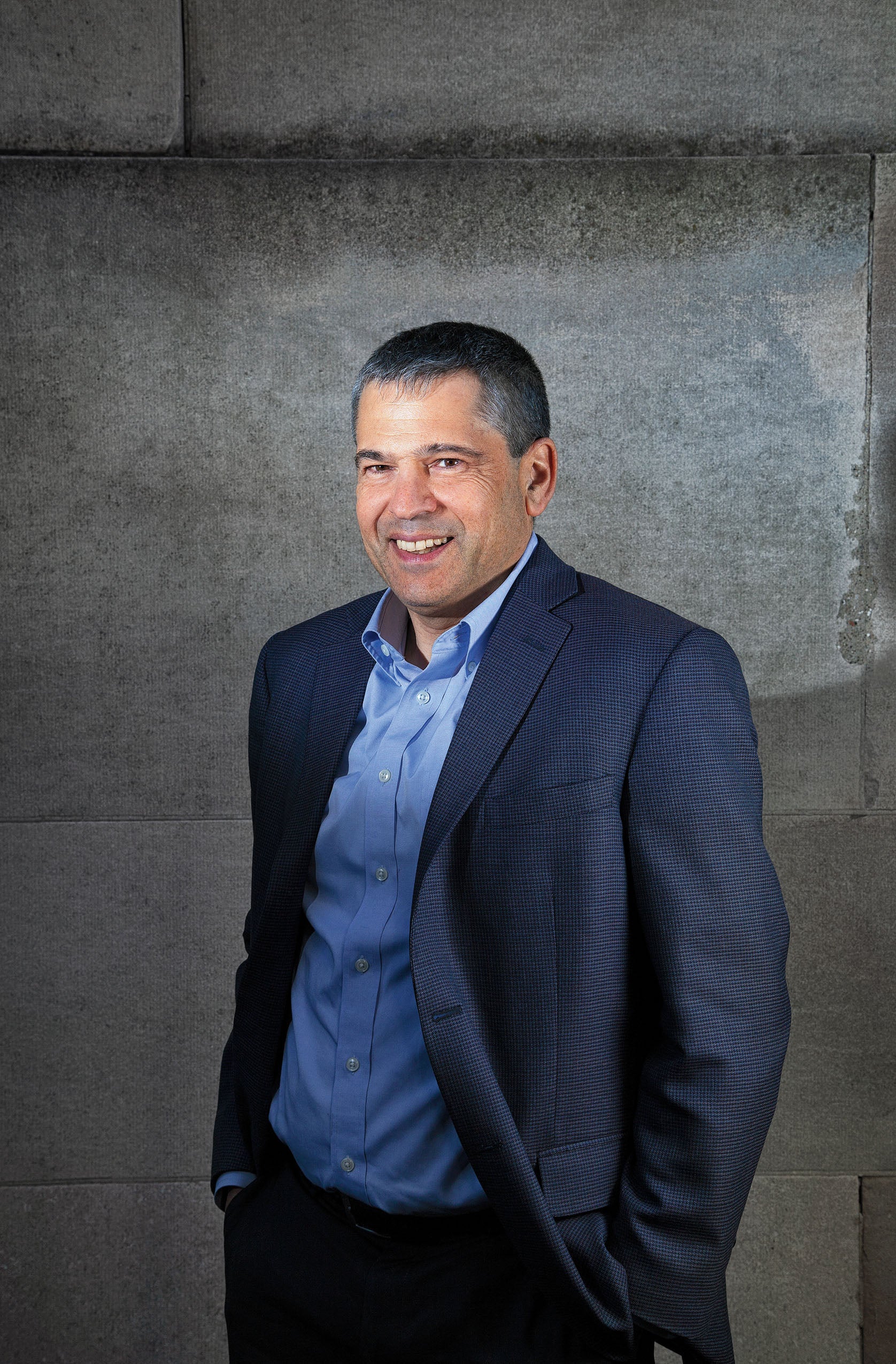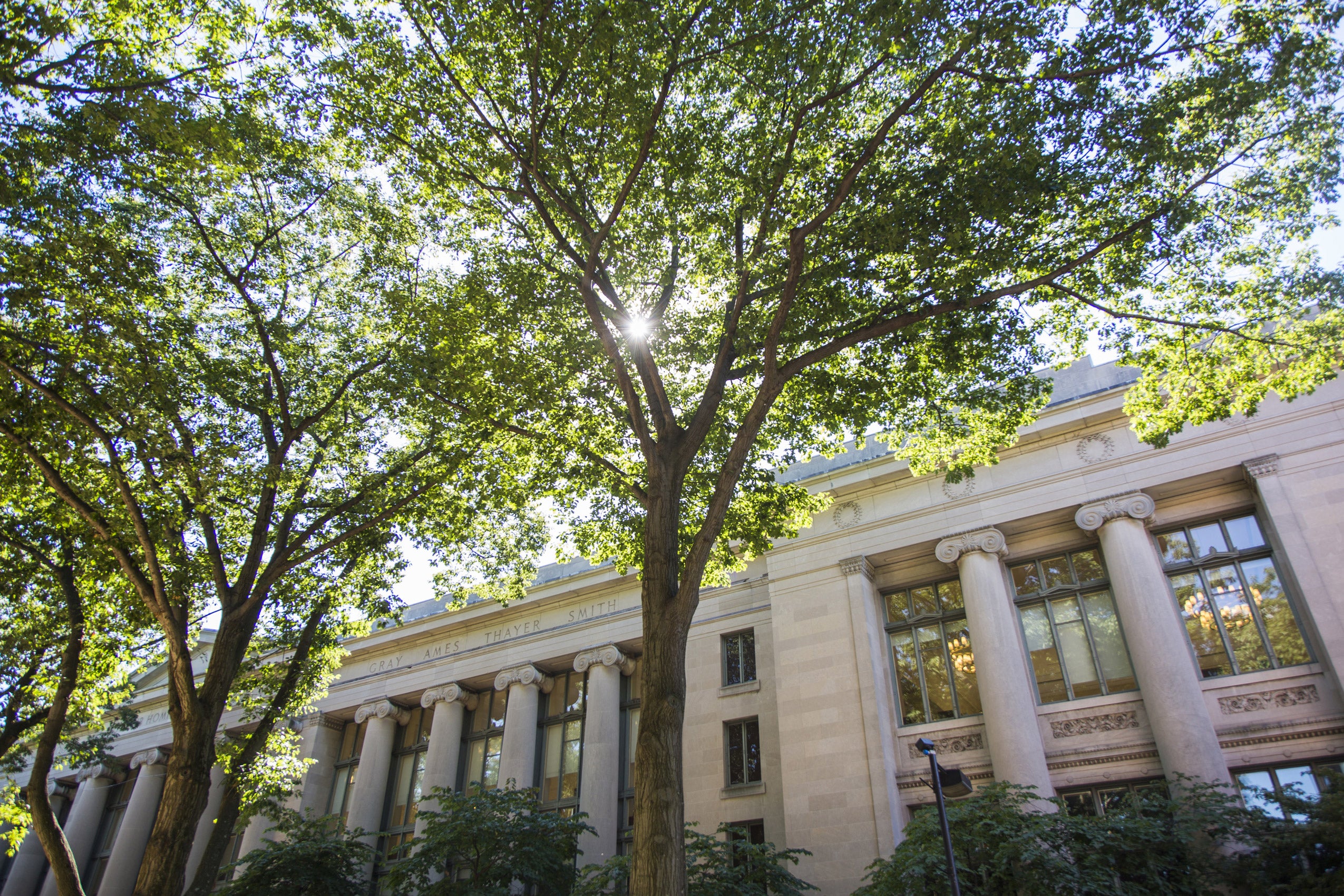People
Jesse Fried
-
What’s the Deal with Stock Buybacks?
February 19, 2019
Harvard Law Professor Jesse Fried ’92 first became interested in the use and misuse of repurchases as an Olin Fellow at HLS in the mid-1990s. He has recently co-written several articles on the topic, including “Are Buybacks Really Shortchanging Investment?” with Charles C.Y. Wang in the Harvard Business Review. Here, Fried offers perspective on a complex, and increasingly political, topic.
-
With stock buybacks, the government should intervene subtly — if at all
February 19, 2019
Long controversial, the practice by which public corporations use spare cash to buy back their own stock has turned into a policy flash point for both Democrats and Republicans. The basic allegation is that profits devoted to stock buybacks — $583 billion by S&P 500 companies during the first three quarters of 2018 — are profits not plowed back into new plants, equipment or higher wages. This is especially galling now, the critics argue, given that last year U.S. corporations got a huge tax cut, whose Republican authors advertised it as a boon to productivity and investment. ... Undoubtedly, stock buybacks favor corporate executives lucky enough to cash out, but to the extent this increases inequality, it mainly favors the very rich (CEOs) over the somewhat rich (shareholders). Opponents of buybacks commonly cite figures showing that they swallowed up 96 percent of S&P 500 profits between 2007 and 2016; research by Harvard professors Jesse M. Fried and Charles C.Y. Wang, however, suggests that the actual figure is more like 41.5 percent after accounting for new stock issuance and expenses for research and development. Contrary to the concerns about diverting investment funds, U.S. nonresidential investment and job creation have been rising for most of the past decade. When shareholders get cash for their stocks, the money doesn’t disappear; it flows through the economy, often as productive investment elsewhere.
-
HLS faculty maintain top position in SSRN citation rankings
January 18, 2019
Statistics released by the Social Science Research Network (SSRN) indicate that, as of the end of 2018, Harvard Law School faculty members have continued to feature prominently on SSRN’s list of the 100 most-cited law professors.
-
Will China Cheat American Investors?
December 18, 2018
An op-ed by Jesse M. Fried and Matthew Schoenfeld: While Washington and Beijing battle over trade, a worrisome cross-border financial link has escaped scrutiny: Americans now collectively own most of the public equity of China’s biggest tech companies, including Alibaba, Baidu and Weibo. This relationship is strange (imagine if the Chinese owned most of Amazon, Facebook and Google). It’s also extremely risky, at least for American investors.
-
A year after their tax cuts, how have corporations spent the windfall?
December 17, 2018
The Republican-led Congress approved a massive corporate tax cut last year on the premise that executives would put the money saved to good use. Companies would build new factories. They would hire more workers. Buy new equipment. Get more efficient. Fund more research. Expand. ... Harvard law professor Jesse Fried has done extensive research on buybacks and supports them. Fried said the money spent on buybacks circulates back to workers because people reinvest the cash they get from selling shares to the company. “Shareholders take much of this cash, invest it in capital-hungry private firms, which use it to invest and hire workers,” Fried said. “And while public firms may grab the spotlight, smaller private firms employ twice as many workers and tend to be much more innovative, and can often put this cash to better use.”
-
We Know Exactly What Kind of President Elizabeth Warren Would Be
October 9, 2018
There’s a quip attributed to LBJ that needs updating for 2020. “Whenever most senators look in a mirror, they see a president,” it goes. Elizabeth Warren’s mirror is a piece of legislation. The Massachusetts Democrat has introduced measures in recent months to transfer corporate governance to Washington and mandate social responsibility, by whatever definition it takes...“The [Accountable Capitalism] Act could also be expected to lead to additional distortions down the road,” writes Harvard Law professor Jessie Fried. Those distortions not only may be clumsy, but nefarious. “Once corporate law is federalized, Congress will be tempted to use its foot-hold in corporate governance to add more mandates and restrictions, ostensibly to address other ‘problems’ in corporate America, but actually to benefit key voting constituencies and campaign financiers.”
-
Understanding the Post-Tax Cuts Buybacks Surge: A Primer
September 24, 2018
Much debate over the effectiveness of the 2017 tax overhaul has centered on corporate buybacks, and as November elections approach, that debate is sure to heat up....But a big chunk of repurchases among the S&P 500 is offset by new equity—$3.3 trillion worth between 2007 and 2016, versus $4.2 trillion in buybacks over the same period, according to a Sept. 4 paper from Harvard Law School professor Jesse M. Fried and Harvard Business School professor Charles C. Y. Wang. The S&P 500 may spend $1 trillion on repurchases in 2018, Fried told Bloomberg Tax, “but they’re probably going to have $500 billion to $600 billion in equity issuances.” The focus on the S&P 500, he said, ignores the many young, growing businesses that employ a much larger slice of the workforce and tend to issue far more shares than they’re paying out.
-
Trump and Warren offer the wrong diagnosis of short-termism
August 27, 2018
An op-ed by Jesse Fried. American president Donald Trump and Democratic senator Elizabeth Warren rarely see eye-to-eye. But both seem to believe that American public companies are overly focused on the short-term, and that the solution is to reduce investor power. Ms Warren this month introduced legislation — the Accountable Capitalism act— that would force all US-domiciled businesses with revenues exceeding $1bn to hand over at least 40 per cent of board seats to employees, and require directors to consider all stakeholders, not just shareholders. President Trump, meanwhile, asked the Securities and Exchange Commission to study the possibility of eliminating quarterly disclosure requirements for public companies. The apparent consensus around corporate short-termism is mistaken. It is powered by myths and misconceptions, not facts and careful analysis.
-
Elizabeth Warren has a plan to save capitalism
August 16, 2018
Elizabeth Warren has a big idea that challenges how the Democratic Party thinks about solving the problem of inequality. Instead of advocating for expensive new social programs like free college or health care, she’s introducing a bill Wednesday, the Accountable Capitalism Act, that would redistribute trillions of dollars from rich executives and shareholders to the middle class — without costing a dime...This is, of course, not an uncontested view. Jesse Fried and Charles Wang argued earlier this year that the real amount of buybacks is overstated by politicians who focus on gross share repurchases that are partially offset by new share issuances.
-
Are Stock Buybacks Starving the Economy?
July 31, 2018
...Not all economic and financial analysts see buybacks as problematic. “Far from being starved of resources, S&P 500 companies are at near-peak levels of investment and have huge stockpiles of cash available for even more,” argue Jesse M. Fried and Charles C.Y. Wang in the Harvard Business Review. “The proportion of income available for investment that went to shareholders of the 500 over the past 10 years was a modest 41.5 percent—less than half the amount claimed by critics.” Plus, if buybacks merely transferred money from businesses to investors who then reallocated that money to other, more dynamic businesses, the overall effect on the economy might be muted.
-
U.S. companies are collecting record amounts of cash in their coffers, and many can’t think of anything better to do with it than buy back their stock. Here’s a better idea: Hand out some of those shares to rank-and-file employees...In practice, though, a sizable portion of the repurchased shares are reissued in the form of equity-based compensation, said Jesse Fried, a Harvard Law School professor who studies compensation and buybacks. Mr. Fried said shareholders may see aligning executive pay with stock performance as logical because senior leaders can do disproportionately more to affect a company’s performance. But giving out shares at the entry level where wages are set could be considered a handout. “Companies aren’t in the business of making charitable contributions with other people’s money,” he said.
-
The Real Problem With Stock Buybacks
July 25, 2018
An op-ed by Jesse M. Fried and Charles C.Y. Wang. There is a problem with share buybacks—but it isn’t the one many critics and legislators are obsessed with...The real problem is that buybacks, unlike dividends, can be used to systematically transfer value from shareholders to executives. Researchers have shown that executives opportunistically use repurchases to shrink the share count and thereby trigger earnings-per-share-based bonuses. Executives also use buybacks to create temporary additional demand for shares, nudging up the short-term stock price as executives unload equity. Finally, managers who know the stock is cheap use open-market repurchases to secretly buy back shares, boosting the value of their long-term equity. Although continuing public shareholders also profit from this indirect insider trading, selling public shareholders lose by a greater amount, reducing investor returns in aggregate.
-
So Warren Buffett is "delighted" that Apple Inc. has decided to buy back $100 billion worth of its own stock. And really, why wouldn't he be? As he pointed out Saturday during Berkshire Hathaway Inc.'s annual meeting, Berkshire owns somewhere around 5 percent of Apple. "And," he noted happily, "with the passage of a little time, I figure we might own 6 or 7 percent simply because they repurchased shares." He added, "I love the idea of having our 5 percent or whatever it may be grow to 6 or 7 percent without us having to lay out a dime." But how should the rest of us feel about this use of Apple's cash?...When I asked Jesse Fried, a professor at Harvard Law School and the author of a recent article defending share buybacks in the Harvard Business Review, why companies weren't using the money to give employees raises, he scoffed. "The idea that a for-profit company shares the wealth with its workers is pretty far-fetched," he said.
-
America’s 500 biggest public companies in 2018 are expected to distribute up to $600 billion or more through stock buybacks...These companies and others find themselves sitting on an Everest of cash, thanks to profits pouring in faster than they can find productive ways to spend it. The profits have built up in recent years, aided by low borrowing costs, rapidly advancing technology that has reduced overhead and boosted margins, and international trade that has allowed offshore production of goods at bargain prices...“Public firms started with $3.3 trillion in cash in 2007 and accumulated 50 percent more cash over the next decade, ending with $4.9 trillion in the bank,” said Harvard law professor Jesse Fried, who is part of a team that has done extensive research on the subject and that supports buybacks. “Buybacks cannot be starving firms of cash for investment if cash stockpiles are huge and rising. If buyback alarmists were correct, investment by public firms should be declining.”
-
Email trail shows how anti-Israel zealots took over a mild-mannered scholarly organization
March 26, 2018
An op-ed by Jesse Fried and Steven Davidoff Solomon. In December 2013, the American Studies Association adopted a boycott of Israel. The organization, which says it “promote[s] the development and dissemination of interdisciplinary research on U.S. culture and history in a global context,” banned ties to Israeli educational institutions. The Israel boycott resolution was first approved by ASA’s leadership, known as the National Council. Then, due to low voter turnout, it was ratified by a mere 20 percent of the organization’s members. Four distinguished ASA members have since sued the group and certain ASA leaders, claiming that the small turnout invalidated the vote’s result under the ASA’s bylaws and the District of Columbia Nonprofit Corporation Act.
-
An enigma baffling American economists for years has been solved, with a little help from outside. In a study published in January, professors Efraim Benmelech, Nittai Bergman and Hyunseob Kim explain why over the 68 years from 1948 to 2016 the productivity of the average American employee increased 242% while wages rose only 115%...One of the most important researchers in this respect is Lucian Arye Bebchuk, a professor at Harvard Law School. Fifteen years ago he published a book with Harvard Law colleague Jesse Fried, “Pay without Performance: The Unfulfilled Promise of Executive Compensation,” explaining why the correlation between executive pay on Wall Street and performance is so weak. It’s mainly because directors are captives of management, and the market for managers isn’t really a market, it’s more like a rigged game.
-
Harvard Law Professors Top Citation Rankings
January 31, 2018
Twelve of the top 100 most-cited law professors of all time teach at Harvard Law School, according to the Social Science Research Network—and professors Lucian A. Bebchuk and Steven Shavell took the first two spots. An electronic service that aims to make research papers and scholarly articles easily accessible, the SSRN contains over 650,000 documents by more than 360,000 authors...“The rankings reflect the significant impact that the Harvard Law School faculty has on policy research and the legal academy,” Bebchuk wrote in an email. Law Professor Cass R. Sunstein ’75, who ranks in fourth place with 1,484 citations, said he thinks there is a significant benefit to publishing work on SSRN. “I think it’s a good thing if you have a paper that’s published and that could benefit from the comments and criticisms of others,” Sunstein said...The list also includes Law professors Louis Kaplow, Reinier H. Kraakman ’71, Mark J. Roe, Jesse M. Fried ’86, Alma Cohen, Allen Ferrell, John Coates IV, Oren Bar-Gill, and J. Mark Ramseyer.
-
HLS faculty maintain top position in SSRN citation rankings
January 24, 2018
Statistics released by the Social Science Research Network (SSRN) indicate that, as of the end of 2017, Harvard Law School faculty members have continued to feature prominently on SSRN’s list of the 100 most-cited law professors.
-
Anti-Israel Activists Subvert a Scholarly Group
December 4, 2017
An op-ed by Jesse Fried and Eugene Kontorovich. Emails unearthed in a federal lawsuit appear to show that the American Studies Association’s decision to boycott Israel was orchestrated by a small cadre of academics who infiltrated the ASA’s leadership to demonize the Jewish state. The ASA website says the scholarly group “promotes the development and dissemination of interdisciplinary research on U.S. culture and history in a global context,” but in December 2013 it endorsed an academic boycott of Israel. The ASA’s leadership, called the National Council, backed the boycott resolution and put it to a membership vote. A third of the members voted, and two-thirds of those endorsed the resolution.
-
Uber’s Ousted CEO Travis Kalanick Discovered the Limits of Founder Control-The Hard Way
June 22, 2017
...But as Uber CEO Travis Kalanick learned this week, founder control is something of an illusion when a company needs constant infusions of investor cash in order to survive...But notably, Kalanick remains on Uber’s board of directors—an indicator that he and his shareholders are making an economic decision, and not a purely ethical one. “You can have the legal power to keep yourself king, but still voluntarily abdicate if that’s what it takes to obtain much-needed capital,” says Jesse Fried, a Harvard Law School professor who specializes in corporate governance. “Who wants to rule over a collapsing kingdom?”
-
Tanium’s Family Empire Is in Crisis
April 13, 2017
A predominant theme in Silicon Valley over the past year involves powerful founders behaving badly. Uber Technologies Inc. and Zenefits, a maker of human resources software, are two companies whose public reputations have been partly undone by such conduct. Now the same destructive dynamic appears to be playing out at Tanium Inc...The situation at Tanium underscores the risk of venture capitalists placing near-absolute power in the hands of a company’s creators. Orion Hindawi and his father David control more than 60 percent of votes on Tanium’s board. Similar structures have worked for Facebook Inc. and Snap Inc., but investors take on increased risk by ceding authority, said Jesse Fried, a professor of business law at Harvard University: “If you have a CEO who generally is doing a good job but is acting bad on the margins, you’re not going to get in their face.”


